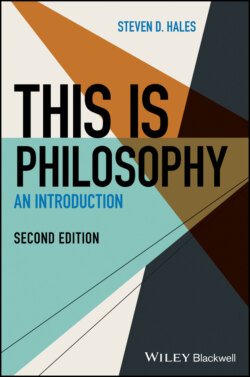Читать книгу This Is Philosophy - Steven D. Hales - Страница 14
Objection 1: horrible consequences.
ОглавлениеThere are many intuitively heinous actions that, under ethical egoism, are morally permissible. For egoists, nothing that people do to each other in the name of their own self-interest is immoral. Consider the following. In 1991 Phillip and Nancy Garrido of Antioch, California kidnapped a blond, pony-tailed 11-year-old little girl named Jaycee Lee Dugard. For the next 18 years they kept her prisoner in their backyard while they raped her. Phillip Garrido fathered two children with Jaycee, the first when she was only 14 years old, and kept the children isolated, uneducated, and captive. The children had never been to a doctor. In 2009 the Garridos were discovered and arrested. Or consider the case of Kristen Diane Parker, a surgery technician at a Colorado hospital. A heroin addict, she routinely stole Fentanyl, a powerful painkiller, from cancer patients, whom she left in pain as she replaced their drugs with saline. As she carelessly switched her used syringes for fresh ones, Parker infected three dozen people with hepatitis C. Eventually she was caught and sentenced to 20 years in prison.
Every day newspaper headlines tell of cases just like these, where people are acting in their own self-interest without regard for others. If you think that Parker and the Garridos are moral monsters, brutal narcissists who have no place in a civilized society, then you should doubt that ethical egoism is the correct theory of morality. After all, under ethical egoism their actions were not merely permissible, but, since they served to advance their own interests, their positive moral duty. Remember, the thesis of ethical egoism is that everyone should always act in their own self-interest, which the Garridos and Parker apparently did. When the kidnapping and sexual enslavement of children and the theft of painkillers from cancer victims turn out to be anyone’s moral duty, one might reasonably question the moral theory at hand.
A defender of ethical egoism might argue that in fact the Garridos and Parker failed to act in their own self-interest, on the grounds that they were caught, convicted, and sent to prison. Surely imprisonment was not in their self-interest. That’s why their actions were wrong; they led to negative consequences for themselves down the road. However, such a defense means that kidnapping, rape, and theft are morally heinous only if you are caught–if you get away with your crimes, then you did nothing wrong after all. Such a defense goes against the intuition that it would have been far worse for Phillip Garrido to continue child rape and enslavement, far worse for Kristen Diane Parker to have continued to infect people with Hepatitis C and steal pain meds from cancer patients. If the world was made better by their capture, then the egoist defense does not work.
